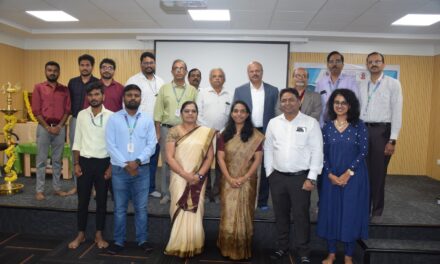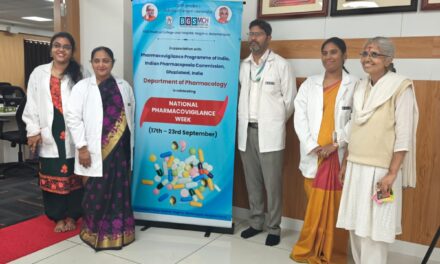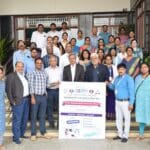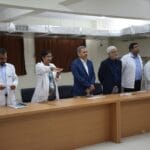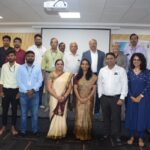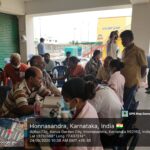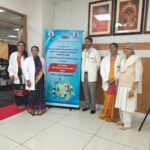
World Heart Day 2025 Observance at BGS Medical College and Hospital
Overview
On the occasion of World Heart Day 2025, the Department of Medicine, in collaboration with the Medical Education Unit (MEU), organized a special guest lecture to promote awareness about cardiac health and advancements in cardiovascular interventions. The event highlighted this year’s theme—Preventive Cardiology and Technological Evolution in Cardiac Care—underscoring the importance of early detection, innovation, and lifestyle modification in reducing the global burden of cardiovascular diseases.
Program Highlights
The session commenced at 2:00 PM with a warm welcome address by faculty members of the MEU. The gathering included faculty and students from various departments.
Guest Speaker:
Dr. Pavan Kumar Rasalkar, MD (AIIMS, Delhi), DM (PGIMER), FSCAI (USA), Senior Cardiologist, Manipal Hospital, Kanakapura, delivered an enlightening lecture titled “The Journey of Interventional Cardiology.
His presentation traced the remarkable evolution of interventional cardiology—from Stephen Hales’ pioneering catheterization experiments in 1711 to the cutting-edge stent and imaging technologies that define today’s cardiovascular practice.
Key Takeaways from the Session
- Historical Evolution: A detailed overview of milestones in interventional cardiology, beginning from early catheter-based procedures to present-day minimally invasive techniques.
- Major Innovations: Insight into landmark contributions by Werner Forssmann (1929), René Favaloro (1967), and Andreas Grüntzig (1977), which paved the way for modern cardiac interventions.
- Modern Advances: Discussion on drug-eluting stents (DES), drug-coated balloons (DCB), intravascular imaging (IVUS, OCT), and mechanical circulatory support devices like IABP, Impella, and ECMO.
- Clinical Impact: Emphasis on how these innovations drastically improved patient outcomes, reducing morbidity and mortality rates.
- Preventive Perspective: Stress on the role of lifestyle modification, early screening, and public awareness in preventing heart disease.
Interactive Session
An engaging Q&A session followed the lecture, where students and faculty interacted with Dr. Rasalkar on recent innovations, ethical considerations, and challenges in the field. The discussion enhanced participants’ understanding of real-world applications and the future of interventional and preventive cardiology.
Outcomes
- Knowledge Enhancement: Participants gained a deeper understanding of the evolution and significance of interventional cardiology and its preventive implications.
- Clinical Awareness: Students and faculty were sensitized to the importance of early detection, risk assessment, and the integration of lifestyle interventions into routine cardiac care.
- Skill Development: The session reinforced evidence-based learning and encouraged future clinicians to adopt innovation and compassion in cardiac healthcare delivery.
- Interdisciplinary Learning: Collaboration between departments fostered a holistic view of cardiovascular health, bridging medical education with clinical practice.
Alignment with Sustainable Development Goals (SDGs)
The event directly contributed to the following United Nations Sustainable Development Goals:
- SDG 3 – Good Health and Well-Being:
Promoting cardiovascular health, preventive care, and awareness to reduce premature mortality from non-communicable diseases. - SDG 4 – Quality Education:
Strengthening professional knowledge and fostering lifelong learning opportunities for healthcare students and faculty. - SDG 9 – Industry, Innovation, and Infrastructure:
Highlighting technological innovations in cardiac care that enhance healthcare infrastructure and patient outcomes. - SDG 17 – Partnerships for the Goals:
Collaboration between academic departments and healthcare professionals to advance collective learning and public health advocacy.
Conclusion
The observance of World Heart Day 2025 at BGSMCH successfully merged academic learning with clinical insight. The lecture inspired participants to embrace a preventive approach to cardiac care, supported by continuous learning and technological progress. The event echoed the spirit of global health promotion and reinforced the institution’s commitment to fostering a heart-healthy future.

